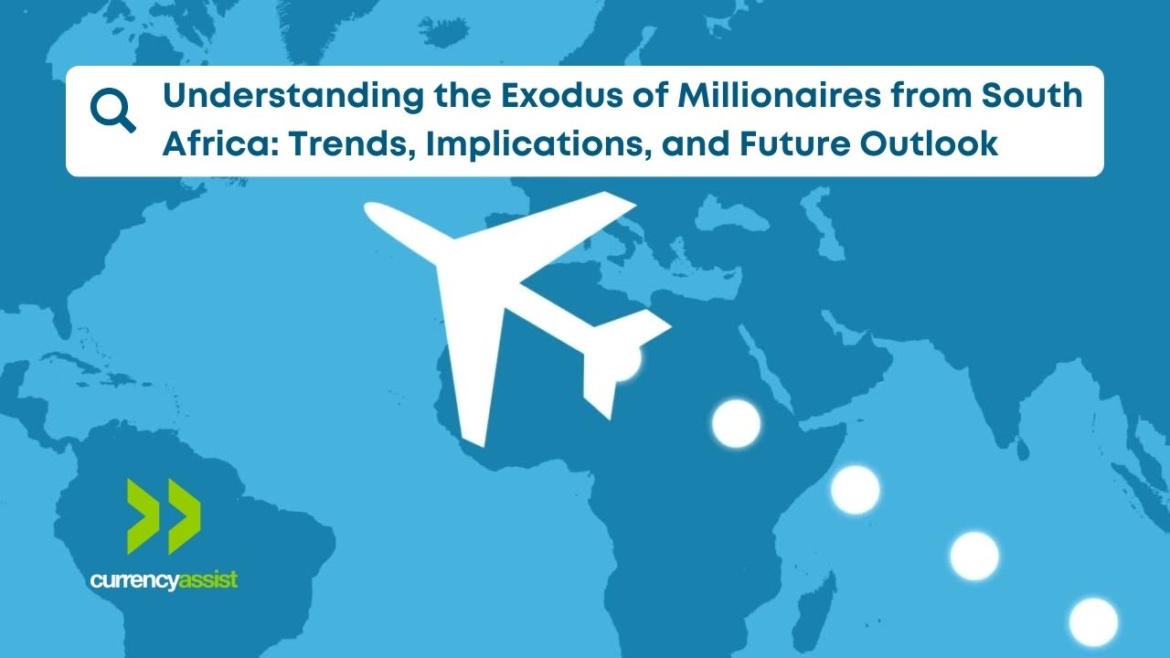In recent years, South Africa has witnessed a significant departure of its high-net-worth individuals (HNWIs), with thousands of millionaires bidding farewell to the country. The latest BRICS Wealth Report for 2023 sheds light on this concerning trend, revealing a 20% decline in the number of US-dollar millionaires in South Africa since 2013. While this departure may raise eyebrows, it’s crucial to examine the factors driving this phenomenon, its potential implications, and the outlook for the future.
According to the BRICS Wealth Report, South Africa’s millionaire population has dwindled by approximately 9,350 individuals over the past decade. This departure has contributed to a broader decline in the nation’s ultra-high-net-worth individuals (UHNWIs), as highlighted in the Knight Frank Wealth Report 2024, which shows a 1.3% decrease in South Africa’s UHNWI population from 2022 to 2023.
The reasons behind this exodus are multifaceted. While economic factors play a role, social and political considerations also weigh heavily on the decisions of wealthy individuals. Concerns over personal security, rising crime rates, and uncertainties surrounding healthcare and education have fuelled apprehensions among high-net-worth families.
Additionally, discussions around potential wealth taxes and tax hikes have added to the unease, prompting affluent individuals to explore opportunities in countries perceived as “safe havens.” Destinations offering favourable tax regimes, robust infrastructure, and business-friendly environments have emerged as attractive options for those seeking stability and wealth preservation.
The departure of millionaires and UHNWIs has far-reaching implications for South Africa’s economy and tax base. Not only does it result in a loss of tax revenue, but it also signals broader economic challenges and undermines investor confidence. The outflow of wealth poses challenges for policymakers, who must navigate the delicate balance between revenue generation and retaining high-net-worth individuals.
Moreover, the emigration trend extends beyond the super-rich, with SARS data indicating a growing number of taxpayers from lower-income brackets changing their tax residency. This demographic shift underscores broader concerns about economic opportunities, social stability, and the future prospects of South Africa’s workforce.
Despite the current challenges, there is room for optimism regarding South Africa’s future. Projections suggest a potential turnaround, with expectations of wealth per capita increasing by 60% by 2033. While addressing the root causes of emigration remains paramount, there are opportunities for economic revitalization and policy reform to attract and retain high-net-worth individuals.
Investments in infrastructure, education, and healthcare, coupled with measures to improve safety and security, can enhance South Africa’s competitiveness and appeal to investors. Moreover, initiatives aimed at fostering a conducive business environment and streamlining tax policies can contribute to long-term prosperity and stem the outflow of wealth.
The departure of millionaires from South Africa underscores the complex interplay of economic, social, and political factors shaping global mobility patterns. While the exodus poses challenges, it also presents an opportunity for reflection and reform. By addressing the concerns driving emigration and capitalizing on the country’s strengths, South Africa can chart a path towards sustainable growth and prosperity for all its citizens.
In navigating these changes, seeking professional advice and planning strategically are essential for individuals contemplating relocation. With careful consideration and informed decision-making, individuals can navigate the nuances of emigration and position themselves for success in their chosen destination.

